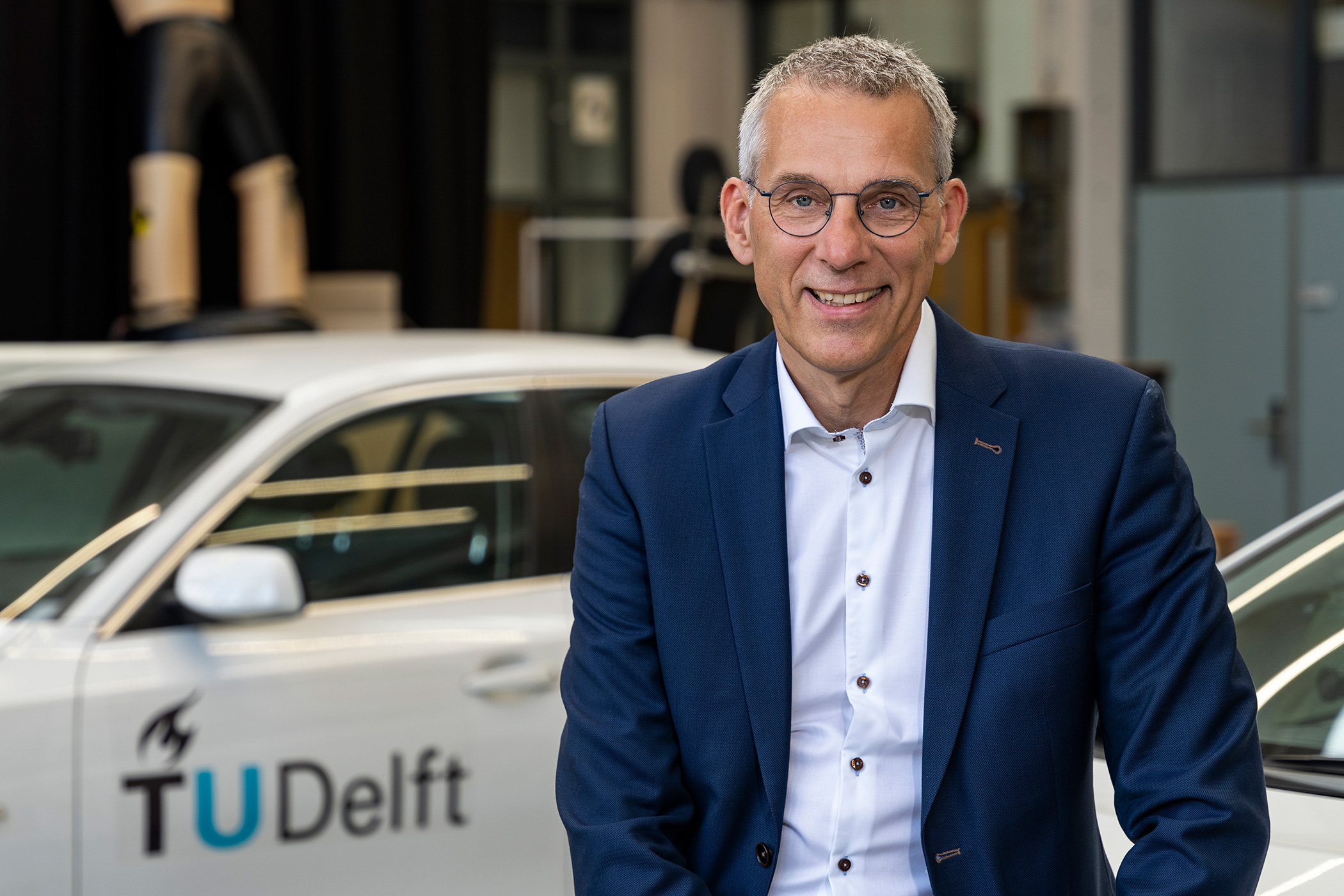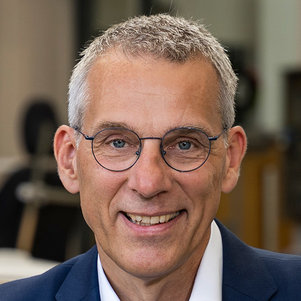Riender Happee appointed Professor in Motion Comfort in Automated Driving
Riender Happee has been appointed Professor in Motion Comfort in Automated Driving at the department of Cognitive Robotics, section Intelligent Vehicles as of 1st of September 2022. Happee’s research focuses on motion perception and motion comfort as key factors in the acceptance of vehicle automation. His research integrates motion perception and biomechanics to explain and predict how users of automated vehicles maintain posture and perceive motion comfort. These insights and models are essential to design automated vehicle motion control strategies and seating systems ensuring comfort in automated driving.
Riender Happee: ‘Automated driving is expected to reach safety levels that allow users to take their eyes off the road, freeing up time for other activities. However, the projected benefits will only materialize if humans experience automation as comfortable and safe. When taking the eyes off the road, many experience motion sickness in dynamic driving. My challenge is to explain and predict how 6D motions elicit sickness and general discomfort.’
Throughout his career, Riender Happee studied the human interaction with technology and captured knowledge in biomechanical, perceptual, and behavioral models. The biomechanical models he developed at TNO Automotive (1992-2007) are now used by the automotive R&D community worldwide to investigate and prevent injuries in road accidents. Riender Happee re-joined TU Delft in 2007 to address fundamental challenges in postural stabilization, using biomechanical models to investigate and predict motion comfort. He investigates the integration of visual, vestibular, and muscle feedback in stabilization of the neck, lumbar spine, and arms, as well as full-body stabilization of seated vehicle occupants, linking models of sensory integration to postural stabilization and motion sickness, based on theories of sensory conflict and postural instability.
At TU Delft (2007-now), Riender Happee connects researchers across multiple faculties and departments in biomechanics, human factors, vehicle dynamics, and machine perception, leveraging the international position of TU Delft in the field of automated driving. He developed automotive education at TU Delft, resulting in the track Vehicle Engineering, now integrated into the new Robotics master.
Riender Happee obtained an MSc in Mechanical Engineering and a PhD (1992) on ‘The control of shoulder muscles during goal directed movements’, both at TU Delft.

